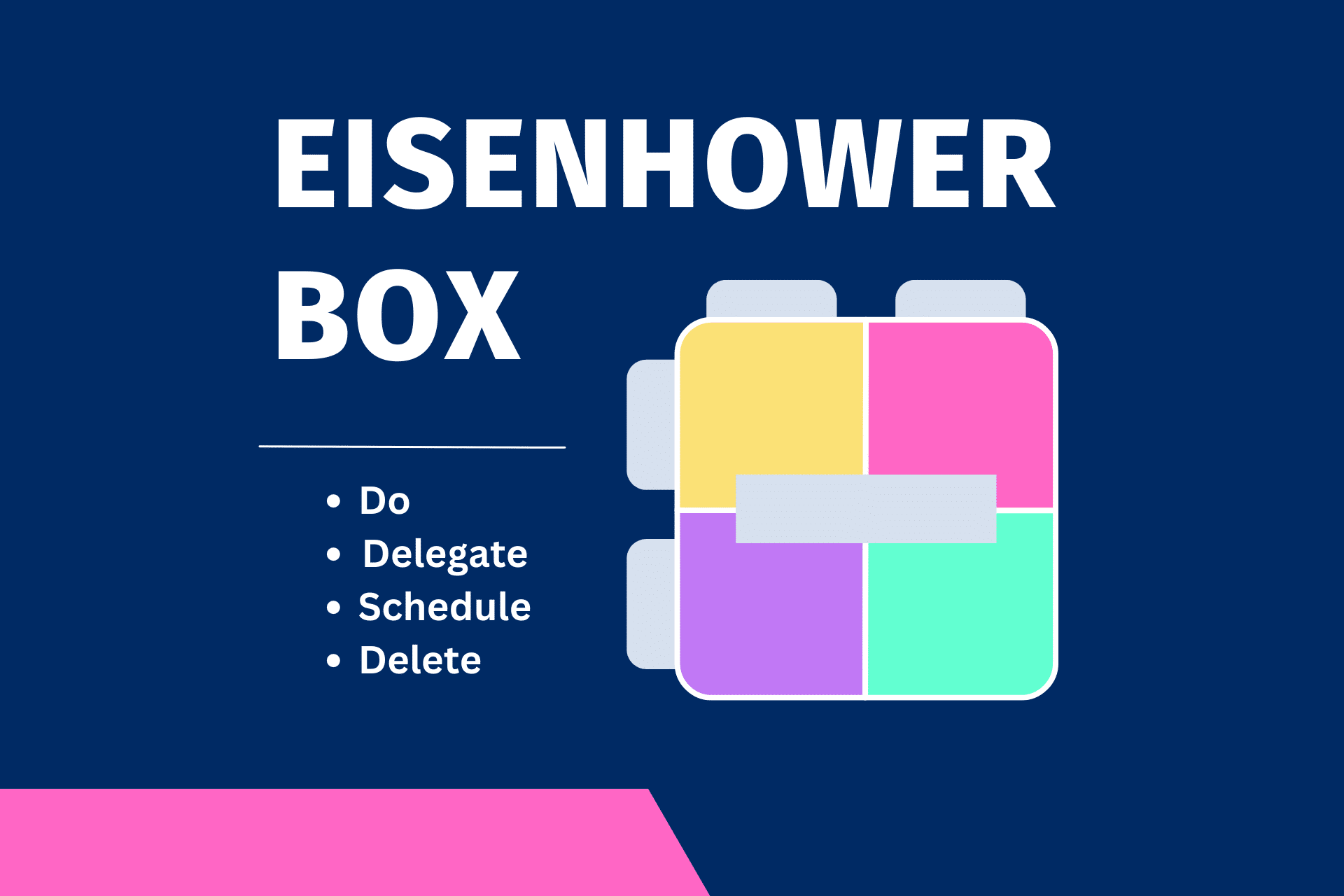Mastering the Clock for a More Fulfilling Life
Whoever said, “Time is gold,” wasn’t kidding, especially when you’re a woman spinning many plates at once. Navigating through the hustle and bustle of everyday life, time management can seem elusive, always out of grasp.
Yet, imagine the symphony of a well-orchestrated day, where every tick of the clock brings you a step closer to your goals instead of pushing you into the abyss of stress and chaos. Imagine reclaiming your time and using it as the powerful tool it is meant to be rather than letting it govern you.
Sounds like a dream?
Well, it doesn’t have to be.
Join us on this enlightening journey as we explore the intricacies of time management specifically for women, complete with practical tips, relatable stories, and some unexpected surprises.
Who knows, by the end of this read, you might just become the maestro of your own time symphony!
Here's What You Will Find

Key Takeaways
Time Management for Women
Time Management is Key: Effectively managing your time is essential in today’s fast-paced world. Prioritizing tasks, establishing daily habits, and addressing distractions can help make your day more productive and less stressful.
Your Journey, Your Pace: Time management isn’t about perfection but progress. Adapt your strategies to suit your changing needs, and remember; it’s okay to take a breather when things get overwhelming.
Work-Life Balance Matters: Proper time management can help achieve a healthier work-life balance. By setting clear boundaries, you can dedicate quality time to your work, personal life, and, most importantly, yourself.
Share to Inspire: Sharing your time management journey can inspire and empower other women. Let’s learn, grow, and thrive together, one time-managed step at a time!
Why is Time Management Crucial for Women Today?
Let’s think of time as a ball of clay for a moment. It’s malleable, ready to be shaped into anything you fancy – a gorgeous vase, a playful animal, or a stunning sculpture. Now, the quality of the final masterpiece depends largely on how skillfully you manage and shape that clay.
Isn’t that the same with time?
For women today, adeptly managing time isn’t just about getting things done – it’s about sculpting a life that matters. With roles that span personal and professional realms, the demand for a woman’s time is immense. The list includes career responsibilities, family needs, social commitments, and personal care. Time management becomes the key to surviving this whirlwind and thriving within it.
Just think about it – mastering time management can increase productivity, lower stress, better decision-making, and even some precious ‘me-time.’ It’s the secret ingredient to creating a fulfilling, balanced life amidst the chaos. And in this fast-paced world, who wouldn’t want that?
Relating to the Time Crunch: Do You Feel It Too?
But hey, before we go any further, let’s address the clock in the room. Time crunch. You know what we’re talking about, right? That sinking feeling that 24 hours just aren’t enough. The constant race against the clock. The nagging guilt of neglected tasks. Trust us; you’re not alone.
The modern woman is a superhero, no less. She’s juggling many tasks and responsibilities, and even with the best intentions, time seems to slip away like sand through her fingers.
Does this strike a chord? If so, you’re in the right place. This is not about a magic wand that adds hours to your day but about empowering you with the right skills and strategies to maximize your time. So, let’s take this journey together, shall we?
The Unique Challenges in Time Management for Women
What Makes Time Management Different for Women?
So, why does time management carry its own set of challenges for women? Is it just the pink-colored glasses we’re looking through, or is there something inherently different?
In fact, the difference is real, and it’s got more to do with societal structures and expectations than the tick-tock of the clock. Women often find themselves at the center of an intricate web where personal aspirations, professional ambitions, and societal norms intersect.
This intricate dance involves maintaining productivity at work and tending to familial responsibilities, nurturing relationships, and finding time for self-care.
And remember, this isn’t about pitting genders against each other. It’s about recognizing the unique context that women operate within and adapting our approach to time management accordingly.
Unpacking the Double Burden: What Does it Mean for Your Time?
Ever heard of the term “double burden”? Many women shoulder this tricky, often invisible load – managing both professional responsibilities and unpaid domestic work. It’s like working two shifts, one at the office and one at home. And let’s not forget the “mental load” that accompanies this – the continuous planning, organizing, and coordinating that happens behind the scenes.
What does this mean for time management? Simply put, it’s like squeezing 48 work hours into a 24-hour day. Phew! Talk about pressure, right? But hold on, don’t hit the panic button just yet. Acknowledging this double burden is the first step towards better time management. It helps us understand why traditional time management advice might not always fit the bill for women and why we need to explore strategies that address these unique challenges.
Hang tight; we’re just getting warmed up! Onward we go to discover how to turn these challenges into opportunities. After all, isn’t that what we women do best?
Understanding Different Perspectives
How Does Time Management Vary Among Women?
Let’s start with a quick thought experiment. Picture two women. One is a single, 30-something executive living in a bustling city, and the other is a middle-aged mother of three juggling part-time work in a small town. Can you imagine these two women having the same time management issues? Probably not, right?
That’s because time management isn’t a one-size-fits-all puzzle. It varies with personal circumstances, career choices, familial responsibilities, cultural contexts, and many other factors.
A new mother might struggle to balance infant care with her desire to return to work. Women climbing the corporate ladder may struggle to carve out time for personal relationships or self-care. A freelancer might grapple with irregular schedules and blurred boundaries between work and home.
Recognizing these varied experiences is the first step towards finding strategies that work for each individual woman.
Intersectionality and Time Management: Are They Connected?
If you’ve been nodding along thinking, “Yep, this is my life,” it’s time to introduce another layer to the conversation – intersectionality. Intersectionality is a term that describes how different aspects of a person’s identity, like race, gender, socioeconomic status, and disability, can intersect and influence their experiences.
What’s intersectionality got to do with time management, you ask? Well, a whole lot! Your experience with time management is shaped by your unique identity and circumstances.
A woman of color may face unique workplace challenges that affect her time. A woman with a disability might need to navigate additional hurdles in her daily routine. An immigrant woman might be balancing her cultural traditions with her new environment.
So, in the quest for effective time management strategies, an intersectional perspective helps us appreciate the diversity of experiences among women. And once we understand these differences, we can begin to tailor time management solutions that respect and address these unique needs.
Remember, there’s no such thing as “standard time management issues for women”. We’re all sailing the same sea, but in very different boats. So let’s chart our own course, shall we?
Inspirational Success Stories
Who Are the Women Excelling in Time Management?
Now, it’s time for some inspiration. And what better way than to spotlight some women who have cracked the time management code?
Take Indra Nooyi, the former CEO of PepsiCo, for example. In the midst of leading one of the world’s largest companies, she managed to dedicate time to her family, staying rooted in her cultural values. She discusses drawing on a “hip pocket” list of priorities and focusing on the critical few instead of the trivial many.
Or how about Shonda Rhimes, the television titan behind hit series like Grey’s Anatomy and Scandal? A single mother of three, Rhimes has championed the idea of saying “no” to things that don’t serve her. She emphasizes the importance of making hard choices and setting firm boundaries.
Then there’s Melinda Gates, a philanthropist, and co-founder of the Bill and Melinda Gates Foundation. She advocates for delegating tasks and sharing domestic work as a key part of managing time.
What Can We Learn from Their Successes?
You might be thinking, “That’s all well and good for them, but what about me?” Well, these stories aren’t just about admiration and inspiration and learning.
From Indra Nooyi, we learn the power of priority. Understanding what matters most and giving our time to those things can make a world of difference.
Shonda Rhimes teaches us that it’s okay to say “No”. Establishing boundaries and guarding our time against unnecessary encroachments is crucial to time management.
Melinda Gates’ story highlights the importance of sharing the load. Delegating tasks, both at work and at home, can free up precious time for other pursuits.
Remember, you don’t need to be a CEO or a TV producer to excel in time management. At the end of the day, it’s about finding strategies that work for you in your unique situation. So, are you ready to become the master of your own time? Let’s find out how!
Evidence-Based Insights on Time Management
What Does Research Tell Us About Effective Time Management?
Science has always been our faithful ally in understanding the world around us, and time management is no exception. Research in the field offers valuable insights into managing our time more effectively.
One enlightening study from Harvard Business School suggests that spending money to save time can increase happiness and reduce stress. This could mean anything from hiring a cleaner to free up time for family or outsourcing certain tasks at work to focus on strategic initiatives.
Another research from the University of California suggests that multitasking might not be the productivity panacea it’s often touted as. Instead, focusing on one task at a time can be more effective.
Are There Specific Strategies for Different Stages of Life and Career?
The phrase ‘different strokes for different folks’ couldn’t be more accurate regarding time management strategies. Different stages of life and career call for different approaches to managing time.
In your early career, it’s all about building efficient habits and learning to prioritize tasks effectively. This might mean cutting down on procrastination, developing a good work routine, and mastering the art of delegation.
As you move towards mid-career and possibly juggle more responsibilities at work and home, work-life balance emerges. Strategies here may include setting clear boundaries, learning to say ‘no’, and cultivating mindfulness to prevent burnout.
At later stages, where you might be in leadership roles or managing a team, time management becomes more about strategic thinking and decision-making. You might need to focus on mentoring others, delegating effectively, and making time for creative and strategic thinking.
Remember, there’s no one-size-fits-all approach to time management. It’s a constant process of learning and adaptation, and what works best for you will evolve as you do. So embrace the journey, and let’s continue ours with some practical, actionable tips!
Practical Time Management Techniques for Women
How Can You Effectively Prioritize Your Tasks?
Prioritizing is a skill, not a talent, which means it’s something you can learn! Here’s a simple technique to get started: the Eisenhower Matrix. This matrix separates tasks into four categories: urgent and important, not urgent but important, urgent but not important, and not urgent or important. This approach helps you visualize where your time should go and where it’s being unnecessarily spent.
Don’t forget the magic of saying ‘no.’ If something doesn’t align with your priorities or isn’t worth your time, it’s okay to turn it down. Remember Shonda Rhimes’ story? Saying ‘no’ can be a powerful time-saving tool.
What Are Some Quick, Daily Habits to Manage Time Better?
Small daily habits can make a big difference. Starting your day with a to-do list can be a game-changer. It sets the tone for the day and helps you stay organized. And remember, it’s not about the length of the list but the value of the tasks on it.
Another good habit is taking short, regular breaks. Research shows that they can boost productivity and creativity. So, consider integrating the Pomodoro Technique (25 minutes of focused work followed by a 5-minute break) into your day.
Finally, don’t forget about self-care. This isn’t a luxury; it’s a necessity. Whether it’s a quick workout, meditation, or just a cup of tea in silence, make sure you carve out some ‘me-time’ every day.
How to Tackle Distractions and Stay on Track?
Let’s face it – distractions are the biggest time thieves! Taming these culprits involves identifying them first. You can create an action plan once you know what’s stealing your focus. Consider using apps that limit screen time or block distracting websites for digital distractions.
Creating a dedicated workspace can also help you stay focused. And remember, your workspace doesn’t have to be a corporate office; it can be a quiet corner at home where you feel comfortable and productive.
Finally, remember to be kind to yourself. Managing distractions isn’t about achieving perfection; it’s about making progress. So celebrate small victories, and keep moving forward.
Armed with these practical techniques, you’re well on your way to becoming a time management pro! Let’s take a look at what’s next on our journey.
Achieving a Balance: Work, Life, and Time
How Can Effective Time Management Support Work-Life Balance?
You’ve probably heard of the elusive “work-life balance”. But what does it really mean? Well, it’s about creating a fulfilling equilibrium between your professional obligations and personal life – and effective time management is the secret sauce that makes this possible.
Mastering time management allows you to set clear boundaries between your work and personal life. By learning to prioritize tasks effectively, you can ensure you’re dedicating quality time to both your job and your loved ones. Remember, balance isn’t about achieving a perfect 50-50 split between work and life. It’s about ensuring you’re not neglecting one for the other.
When you manage your time well, you’re also likely to reduce stress and avoid burnout, leaving more energy for the things you love.
So, in essence, good time management equals better work-life balance!
What Role Can Your Workplace Play in This Balance?
Your environment plays a big role in how well you can manage your time. And this includes your workplace. Forward-thinking companies today realize the importance of promoting healthy work-life balance for their employees.
Flexible work hours, remote work opportunities, and promoting a culture of respect for personal time can go a long way in supporting your time management efforts.
If you’re in a position to advocate for these changes, go for it! If not, consider having a discussion with your manager or HR department about how they can support your pursuit of work-life balance. Remember Melinda Gates’ story? Sharing the load is as much about the home as it is about the workplace.
Achieving work-life balance isn’t a sprint; it’s more of a marathon with hills, valleys, and the occasional water break. But with effective time management, you’ll be well-equipped for the journey. Let’s march on!
Staying Motivated on Your Time Management Journey
How to Keep Your Momentum in Managing Time?
Keeping your momentum in managing time is like maintaining a workout routine – it requires consistency, commitment, and a splash of motivation. To stay on track, remember your “why.” Why do you want to manage your time better? Is it to spend more time with family, reduce stress, or perhaps achieve a specific career goal? Revisiting your motivation can be a powerful tool to keep you moving forward.
Also, remember to celebrate small victories. Managed to finish a task within the set timeframe? Took a lunch break without looking at work emails? Fantastic! Every step, no matter how small, is progress.
Lastly, keep learning and adapting. The time management strategies that work for you today might not be as effective tomorrow. Be open to trying new techniques, tools, and methods. And remember, it’s not about being perfect; it’s about being better than yesterday!
Feeling Overwhelmed? What Should You Do?
Despite your best efforts, there might be times when you feel overwhelmed. It’s perfectly normal, and there’s no need to beat yourself up about it.
When this happens, take a breather. Stepping away from the situation for a few moments can provide a fresh perspective. Try to identify what’s causing the stress. Is it a specific task, a general feeling of being overloaded, or perhaps something unrelated to your workload?
Once you’ve pinpointed the cause, you can start to address it. Can a particular task be broken down into smaller, more manageable parts if it is overwhelming? If your overall workload is too much, could you delegate some tasks or ask for help?
Remember, it’s okay to seek support from a colleague, friend, or professional. No one is an island, and sometimes, a problem shared really is a problem halved!
Managing your time effectively is an ongoing journey, but with the right mindset and tools, it’s a journey you’re well equipped to make. Keep going, keep growing, and remember to have a bit of fun along the way! Time management doesn’t have to be all work and no play. As they say, time flies when you’re having fun!
Time Management as a Continuous Journey
Why is Time Management More About Adaptability Than Perfection?
Time management isn’t a destination; it’s a journey that changes and evolves with you. Embracing adaptability over pursuing perfection is a vital step in that journey. You’ll face unexpected twists and turns, moments of uncertainty, and even the occasional bump in the road. But remember, each challenge is a learning opportunity, helping you to grow stronger and more resilient.
Why Sharing Your Time Management Journey Matters?
Sharing your journey with others does more than just celebrate your victories—it allows you to inspire others, creating a ripple effect of empowerment. By sharing your successes, setbacks, and learnings, you can become a beacon of hope and motivation for others navigating their own time management journey.
Ready to Master Your Time? Start Today!
There’s no better time than now to embark on your journey towards mastering time management. And remember, we’re here with you every step of the way. Don’t hesitate to reach out if you have any questions or need help with anything. We’re just one message away!
How Can You Inspire Others with Your Time Management Journey?
Remember, your journey can empower others. Share this post with the phenomenal women in your life who might face similar challenges. Let’s support each other in mastering our time and shaping our narratives!
From time management to work-life balance, many topics exist to explore. Continue your journey with our other articles and take another step towards a more balanced, fulfilling life.
As they say, “Time waits for no woman,” but with effective time management, every woman can make the most of her time! Let’s start that journey today.
More on Time Management Tools

Eat the Frog Technique: Transform Your To-Do List into a Done List!

9 Benefits of Time Management: How to Add More Hours to Your Day and Achieve Your Dreams!

Time Management Tips for Busy Women: Squeeze More Out of Your Day with These Eye-Opening Techniques!

Pareto Principle (80/20 Rule): How to Get More by Doing Less!

Pomodoro Technique: The Revolutionary Method to Tackle Your To-Do List!

Examples of Boundaries: Set Them Now, Reap the Rewards Forever!

How to Say No: The Game-Changing Skill You Wish You Learned Sooner!

Eisenhower Box: Quadruple Your Productivity in Just One Day!
Related Articles
Financial Resilience: 10 Steps That Will Completely Transform Your Financial Life!
Mastering Organizational Resilience: 7 Insider Strategies for Bulletproofing Your Business!
Entrepreneurship, Career Development
Operational Resilience: The Game-Changer Strategies Every Business Leader Needs to Know!
Career Development, Entrepreneurship
50-30-20 Rule Revealed: Budget Like a Pro and Save More!
Can Money Buy Happiness? It Pays for Pedicures, Not Peace of Mind!



